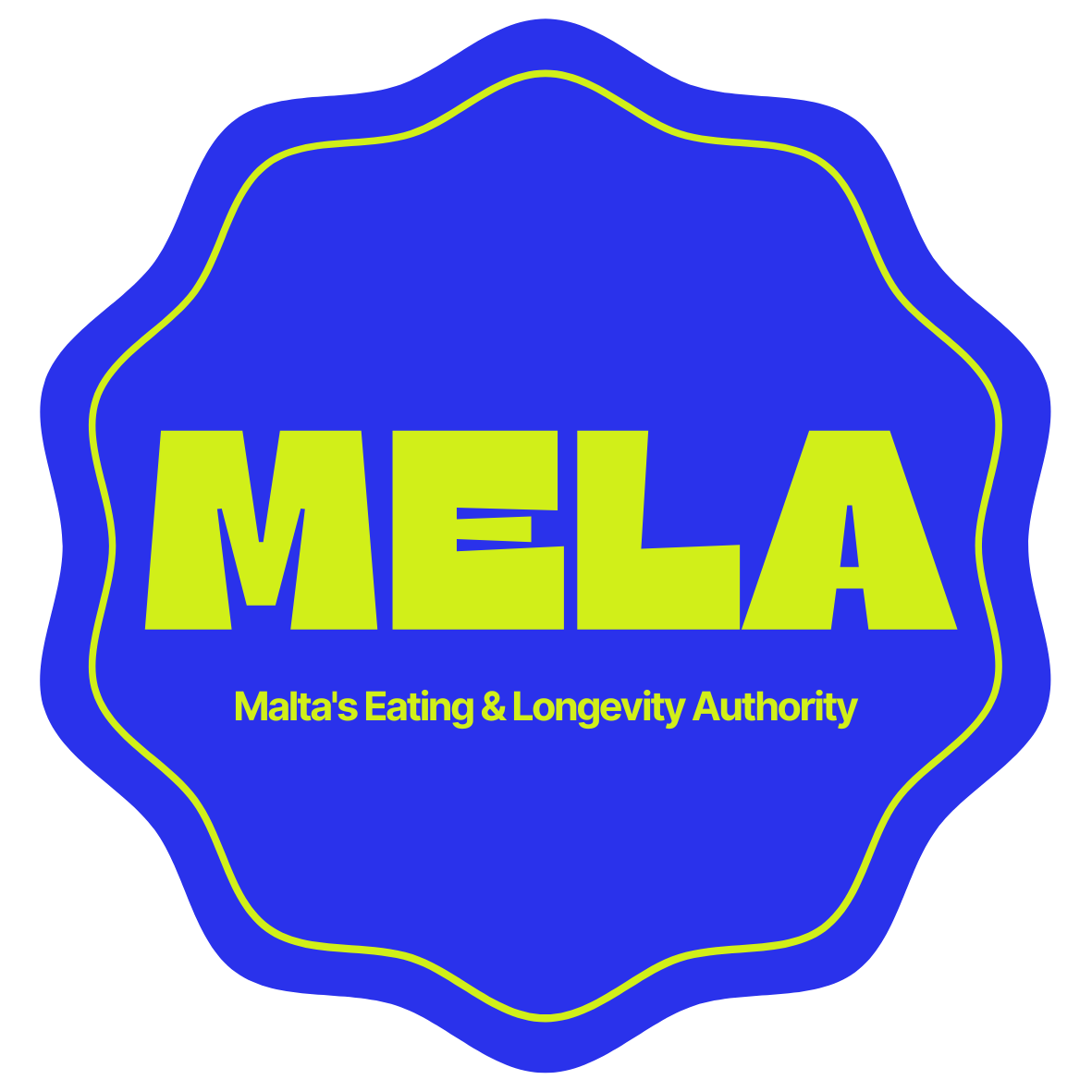ADHD in Malta has become a pressing healthcare issue, with diagnostic rates soaring and treatments needing urgent reform. But here’s the shocking truth: only 65% of diagnosed individuals are on medication, which remains the gold standard treatment. What about the rest? Malta’s healthcare system is grappling with unaddressed gaps in adult ADHD recognition, economic productivity loss, and a demand for holistic strategies. Read on to uncover how Malta is fighting back, redefining ADHD care, and leading the charge in Europe.
Groundbreaking Statistics: ADHD Prevalence in Malta
Did you know that ADHD affects approximately 5-7% of the global population, and Malta is no exception? In 2026, between 3,500-4,900 residents are impacted by ADHD, a condition that affects both children and adults. Diagnostic rates for adult ADHD have skyrocketed globally, as witnessed by a twenty-fold increase from 2000 to 2018, a trend Malta mirrors with public healthcare waiting lists stretching beyond six months.
Learn more about the diagnostic surge and treatment preferences, as cited from studies like ADHD Malta’s Advocacy for Healthcare Reform, outlining urgent improvements needed in ADHD guidelines globally.
What’s Missing? A Look at Malta’s ADHD Medication Access
While medications like Methylphenidate Hydrochloride remain foundational for ADHD care, accessibility issues linger. Malta’s advocacy group, ADHD Malta, has actively called for the World Health Organization (WHO) Essential Medicines List to include these essential drugs. Current stats reveal:
- 65% of ADHD patients rely on medication, leaving 35% of individuals choosing hybrid approaches involving behavioral therapy.
- Only 13.3% of patients use counseling alone, as documented in WHO Reports.
This treatment gap not only undermines healthcare efficacy but also correlates to a €12-15 million annual economic burden due to reduced productivity and increased healthcare costs.
.png)
The Hybrid Approach: What Works Best?
Based on September 2026 Healthcare Findings, combining Methylphenidate with behavioral therapy is the most effective strategy. Studies show hybrid methods offer:
- Improved symptom management, including focus and impulse control.
- Enhanced behavioral insights promoting holistic well-being.
- Reduced reliance on just pharmaceutical interventions, a significant benefit for adults hesitant about medication.
Find expert advice on hybrid healthcare approaches at Qbtech Blog on ADHD Trends, which details behavioral strategies and alternative treatments.
Economic Impact: Why Untreated ADHD Is Costing Malta Millions
ADHD is not just a mental health issue; it’s an economic concern. One adult failing to function optimally due to untreated ADHD costs significant healthcare support, lost workplace productivity, and educational setbacks. Multiply these by a thousand, and Malta’s economy loses up to €15 million annually.
The good news? Initiatives like Malta’s Mental Health Strategy 2020-2030, documented comprehensively in the health.gov.mt guide, are actively designing frameworks to integrate ADHD-focused medical reforms, expand neurodevelopmental educational resources, and speed diagnostics through public-private partnerships.
.png)
ADHD Thrives When Healthcare Thrives: Resilience Now
Checklist for Tackling ADHD Diagnosis and Awareness
- Expand Access: Streamline public-private diagnostic resources to cut waiting times.
- Medication Advocacy: Ensure Malta succeeds in placing ADHD medication on WHO’s Essential List.
- Behavioral Therapies: Promote partnerships between schools, mental health experts, and workplaces.
Seasonal education efforts or workshops could unleash comprehensive public ADHD awareness campaigns, as mentioned by ADHD Malta’s appeals to WHO. Such efforts position Malta not just as a treatment provider but as an EU leader in ADHD adaptive care solutions.
Research-Based Seasonal Strategies for ADHD Management
Seasonal adjustments impact ADHD regulation significantly. Here’s how Malta-specific approaches could excel:
Spring Focus: Implement outdoor therapies that emphasize physical activity in consuming natural light for ADHD symptom improvement.
Autumn Competency: Offer workplace initiatives encouraging flexible scheduling and mindfulness therapy, empowering adults to manage ADHD amid career goals better.
Summer Adaptions: ADHD-sensitive environments enabling stress mitigation and hydration amid Malta’s humid climates.
.png)
Final Opinion: Malta’s ADHD Revolution Begins with YOU
Malta may still battle untreated ADHD costs and slow diagnoses, but groundbreaking legislation aligning Mental Health Agendas 2026 initiatives is paving the way. Locals can now tune into MELA AI Integration Models for cutting-edge personal solutions offered by behavioral research systems, emphasizing ADHD holistic diagnostics. Want insider tips? Explore locally researched guides suggested via AI-Powered Malta Index Resources!
Ready for more ADHD success stories? Dive deeper into healthcare usage testimonials guided by Malta’s top NGO efforts and consumer advocacy proven by optimized results shared Read MELA AI’s Role Digging Deeper Here
Conclusion
Malta’s journey toward revolutionizing ADHD care is more than just a response to an urgent public health issue, it signals a transformative step toward an inclusive, innovative, and resilient healthcare system that prioritizes both mental wellbeing and economic stability. By closing treatment gaps, integrating hybrid therapeutic models, and advocating for better access to medication, Malta establishes itself as a leader in ADHD-focused healthcare strategies across Europe.
However, this progress is a shared responsibility. From the policymakers accelerating diagnostic reforms to local communities raising awareness, every effort counts. With initiatives like the Mental Health Strategy 2020-2030 sparking systemic changes and NGOs such as ADHD Malta leading advocacy efforts, the roadmap for ADHD care in Malta is promising. The time to act, innovate, and thrive is now.
For individuals and families navigating ADHD, the resources and support systems emerging on the island provide a beacon of hope for sustained, impactful change. But as with any revolution, grassroots efforts play a crucial role. Whether it’s schools promoting mindfulness workshops, workplaces enabling flexible policies, or healthcare providers committing to whole-person treatments, every step matters.
For those seeking complementary ways to balance mental health through lifestyle enhancements, MELA AI offers the perfect gateway. By exploring MELA-approved restaurants in Malta and Gozo, you can prioritize well-being through healthy dining options, aligning with ADHD-friendly nutritional practices. After all, health-conscious meals play a pivotal role in mental sharpness, focus, and overall resilience.
Let’s work toward a Malta where ADHD thrives not as a challenge but as an opportunity to redefine holistic healthcare. The revolution begins with conscious choices, collaborative efforts, and innovative tools, so why not start with a meal that nourishes both mind and body? Explore the MELA Index today and discover how Malta’s healthy dining scene complements a thriving mental health agenda.
Because, in Malta’s ADHD care revolution, every community-driven step brings us closer to a brighter, balanced future.
FAQ on ADHD Thrive: Comprehensive Report for Malta – September 2026
What is ADHD Thrive, and how does it aim to transform ADHD care in Malta?
ADHD Thrive is a revolutionary mental health strategy focused on addressing the urgent needs of ADHD diagnosis, treatment, and awareness in Malta. It highlights the unmet needs in access to medication, adult ADHD recognition, and hybrid treatment methods combining medication with behavioral therapy. With over 3,500-4,900 individuals (5-7% of the population) affected by ADHD, ADHD Thrive encourages new frameworks within Malta’s healthcare system to bridge current gaps. The initiative also emphasizes advancing public policy, including placing essential medications like Methylphenidate Hydrochloride on WHO’s Essential Medicines List, thereby paving the way for improved accessibility and reducing untapped economic potential costing Malta €12-15 million annually.
Why is ADHD under-treated, and what is being done to reduce medication disparities?
The under-treatment of ADHD in Malta can be traced to systemic gaps in healthcare infrastructure, long diagnostic waiting periods exceeding six months, and the stigma associated with psychiatric medication use. While 65% of individuals use medication, a significant percentage either rely exclusively on counseling (13.3%) or hybrid approaches combining behavioral therapies (35.2%). ADHD Thrive aims to reduce treatment disparities by advocating the inclusion of ADHD medication in WHO’s Essential Medicines List, increasing financial subsidies, and streamlining diagnostic procedures via public-private partnerships to improve medication access and equity in care.
How does ADHD affect Malta’s economy and workforce productivity?
ADHD has a profound economic impact, costing Malta between €12-15 million annually. This includes costs from lost workplace productivity, healthcare resource strain, and educational support requirements. ADHD’s untreated symptoms, such as impulsivity and difficulty in task management, lead to higher turnover rates and absenteeism in workplaces. ADHD Thrive works to address these challenges by integrating ADHD care within Malta’s ongoing Mental Health Strategy (2020-2030), emphasizing workplace support systems and early diagnostic interventions to minimize such economic burdens.
Are there seasonal strategies for managing ADHD symptoms effectively in Malta?
Yes, seasonal approaches significantly improve ADHD symptom management. For example:
- Spring: Outdoor therapies in Malta’s natural landscapes leverage physical activity and sunlight exposure to reduce hyperactivity and regulate attention.
- Autumn: Customized workplace mindfulness therapies empower adults to meet career goals while managing ADHD proactively.
- Summer: Environmental adaptations such as hydration-focused and cooldown therapies aid symptom regulation in Malta’s humid conditions.
Encouraging individuals to adopt these seasonal strategies promotes holistic ADHD management attuned to Malta’s unique climate and lifestyle.
Can hybrid treatment approaches significantly improve ADHD therapy outcomes?
Yes, hybrid treatment approaches combining medication (e.g., Methylphenidate) and behavioral therapy yield superior outcomes. Recent findings show enhanced focus, impulse control, and overall mental well-being when both approaches are used concurrently. In Malta, approximately 35.2% of ADHD patients utilize hybrid methods. This dual approach is especially effective in addressing long-term behavior insights and reducing dependency on pharmaceuticals for individuals hesitant about medication alone. ADHD Thrive promotes adopting hybrid strategies in coordination with Malta’s mental health professionals for maximum impact.
What role does MELA AI play in promoting ADHD health solutions in Malta?
MELA AI is at the forefront of enhancing Malta’s quality of life, including in the mental health space. By integrating ADHD Thrive methodologies into its wellness-focused initiatives, MELA AI provides resources for balanced living. The platform offers tools to educate families on dietary strategies that may support ADHD symptom management. For example, MELA-AI-rated restaurants across Malta offer ADHD-friendly meal plans like omega-3s for cognitive health. You can explore wellness-approved restaurants with the prestigious MELA sticker by accessing the MELA AI Malta Restaurants Directory.
How can health-conscious dining with MELA AI help individuals with ADHD?
For individuals with ADHD, proper nutrition is integral to managing symptoms like impulsivity and inattention. Restaurants recognized by the MELA AI index offer meals aligned with mental health research, prioritizing high-protein diets, omega-3 fats, and low sugar. For example, dining at these venues promotes stabilized energy levels and better cognitive focus. Health-conscious diners can search the MELA Restaurants Directory to find establishments offering ADHD-supportive menus in Malta. Explore healthier dining options on the MELA AI platform here.
Why should ADHD medication like Methylphenidate be included in the WHO Essential Medicines List?
Medication inclusion in the WHO Essential Medicines List is pivotal for improving global and local ADHD care. Methylphenidate Hydrochloride, widely recognized as the gold standard for ADHD treatment, enhances focus and reduces impulsive behavior significantly. Its non-inclusion in the list undermines accessibility, particularly across public healthcare systems such as Malta’s. ADHD Thrive advocates for its inclusion to elevate treatment equity and reduce societal stigmas around pharmacological approaches. Supporting this appeal would not only validate ADHD as a significant public health issue but also ensure affordability for underserved populations.
How is Malta working toward reducing diagnostic delays in adult ADHD?
Malta has seen increased advocacy and national focus on adult ADHD since diagnostic rates skyrocketed twenty-fold globally between 2000 and 2018. Still, long waiting lists (over six months) in public healthcare delay interventions. ADHD Thrive partners with the Mental Health Strategy 2020-2030 to streamline diagnostic procedures, integrate neurodevelopmental resources in workplaces and schools, and encourage early ADHD symptom recognition. Efforts also include public-private diagnostic collaborations that could halve waiting times by 2026.
How can Malta lead as a top ADHD care provider in the EU?
Malta has significant potential to become an EU leader in ADHD care through multitiered initiatives such as ADHD Thrive. By advocating for global medication equity, reducing diagnostic delays, and implementing hybrid treatment approaches, Malta sets a high bar for progressive interventions. Public education campaigns, ADHD-friendly workplaces, and MELA AI-integrated strategies further promote proactive care for ADHD patients. These frameworks position Malta as a hub for innovative mental health solutions and economic productivity recovery. Explore how MELA AI contributes to Malta’s ADHD revolution on their platform.
Check out another article that you might like:
The Waterfront Hotel Sliema: Your Guide to Wellness-Focused Luxury
About the Author
Violetta Bonenkamp, also known as MeanCEO, is an experienced startup founder with an impressive educational background including an MBA and four other higher education degrees. She has over 20 years of work experience across multiple countries, including 5 years as a solopreneur and serial entrepreneur. Throughout her startup experience she has applied for multiple startup grants at the EU level, in the Netherlands and Malta, and her startups received quite a few of those. She’s been living, studying and working in many countries around the globe and her extensive multicultural experience has influenced her immensely.
Violetta is a true multiple specialist who has built expertise in Linguistics, Education, Business Management, Blockchain, Entrepreneurship, Intellectual Property, Game Design, AI, SEO, Digital Marketing, cyber security and zero code automations. Her extensive educational journey includes a Master of Arts in Linguistics and Education, an Advanced Master in Linguistics from Belgium (2006-2007), an MBA from Blekinge Institute of Technology in Sweden (2006-2008), and an Erasmus Mundus joint program European Master of Higher Education from universities in Norway, Finland, and Portugal (2009).
She is the founder of Fe/male Switch, a startup game that encourages women to enter STEM fields, and also leads CADChain, and multiple other projects like the Directory of 1,000 Startup Cities with a proprietary MeanCEO Index that ranks cities for female entrepreneurs. Violetta created the “gamepreneurship” methodology, which forms the scientific basis of her startup game. She also builds a lot of SEO tools for startups. Her achievements include being named one of the top 100 women in Europe by EU Startups in 2022 and being nominated for Impact Person of the year at the Dutch Blockchain Week. She is an author with Sifted and a speaker at different Universities. Recently she published a book on Startup Idea Validation the right way: from zero to first customers and beyond, launched a Directory of 1,500+ websites for startups to list themselves in order to gain traction and build backlinks and is building MELA AI to help local restaurants in Malta get more visibility online.
For the past several years Violetta has been living between the Netherlands and Malta, while also regularly traveling to different destinations around the globe, usually due to her entrepreneurial activities. This has led her to start writing about different locations and amenities from the POV of an entrepreneur. Here’s her recent article about the best hotels in Italy to work from.



